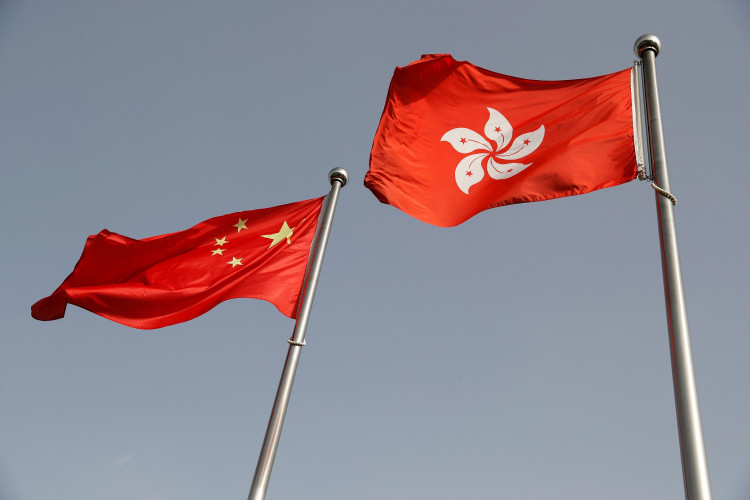China announced on Monday it will impose sanctions on U.S. lawmakers, officials, and heads of non-governmental organizations over what it described as "egregious behavior" regarding Hong Kong, escalating tensions with Washington amid a broader deterioration in bilateral relations.
The move follows a March decision by the U.S. State Department to sanction six Chinese and Hong Kong officials, including Hong Kong Justice Secretary Paul Lam and State Security Office Director Dong Jingwei, citing involvement in "transnational repression" and efforts to undermine the city's autonomy.
Chinese Foreign Ministry spokesperson Guo Jiakun condemned the U.S. sanctions, calling them "despicable" and a violation of international law. "China has decided to impose sanctions on U.S. congressmen, officials, and NGO leaders who have performed poorly on Hong Kong-related issues," Guo said at a press briefing in Beijing. He declined to identify the individuals affected or specify the scope of the sanctions.
Guo warned that Hong Kong is "China's Hong Kong" and not subject to foreign interference. "Any wrong action taken by the U.S. side on the Hong Kong-related issue will be met with resolute and reciprocal counteraction by the Chinese side," Guo said, as reported by the Reuters.
The announcement marks the latest episode in a tit-for-tat cycle of sanctions dating back to 2019, when the Trump administration began targeting Chinese and Hong Kong officials following the city's pro-democracy protests and Beijing's subsequent imposition of a national security law. President Joe Biden's administration has continued the policy, citing deteriorating political freedoms in the former British colony.
Since the introduction of the security law in 2020, authorities in Hong Kong have shuttered independent media outlets, disbanded civil society groups, and arrested scores of political activists. In the past two years, arrest warrants have been issued for 19 overseas activists-some based in the U.S.-with bounties of HK$1 million ($128,536) placed on their capture.
In response, the Biden administration in March published a new report under the Hong Kong Policy Act, stating the city's autonomy had been "further eroded." The State Department simultaneously announced new sanctions on officials alleged to be complicit in suppressing dissent.
Beijing rejected the report, calling it "filled with lies and fallacies," and accused Washington of serious interference in China's internal affairs.
China's retaliatory sanctions were announced under the country's 2021 anti-foreign sanctions law, which grants Beijing authority to take countermeasures against individuals or organizations deemed to be harming its interests.






